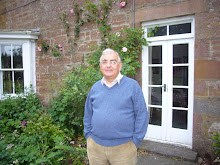Another world comes alive when the sun goes down. There's a world of animals, birds, insects, plants - even human beings - for whom night time is their time of day. It's not as diverse a world as the daytime world, I grant you, but the countryside is a busy place when most of us have gone to bed.
I take my dogs out last thing before they settle down for the night and, as often as not, there's something to catch my interest. We live in a well-wooded area and with spring around the corner (provided there isn't any more snow!) tawny owls keep us company. They're warning each other about intruders, of course, but at this time of year if I stand at the back door in the dark for ten minutes and just listen, it's their courtship calls I hear. The females will be laying their eggs soon so the nuptials must be nearly complete.
A bird which is almost as active at night as in the daytime is the oyster catcher. From spring until the end of October the dogs and I hear their piping “kleep, kleep” calls on the night time walk. Some never seem to rest at all at night and if I wake up I listen for their sharp cries. Sometimes a small pack of them swoop over our rooftops all calling together and the noise is loud enough to wake me up.
They are really birds of the sea shore and cliff tops but have adapted their lifestyle, expanding inland into new breeding habitats. They feed in the soft mud of river banks and lochs and ponds, probing with their long orange beaks for worms and molluscs, and returning to the milder temperatures of the sea shore in winter when the prospect of frost means they can no longer forage in the frozen ground inland.
It's one of the few birds - ducks and geese are some of the others - that can be as active at night as they are during the day.

No comments:
Post a Comment